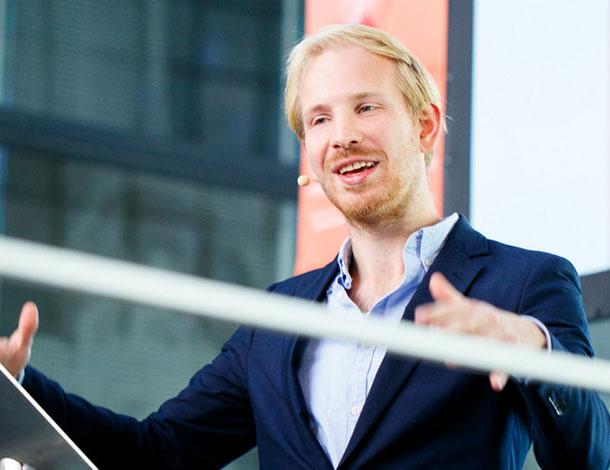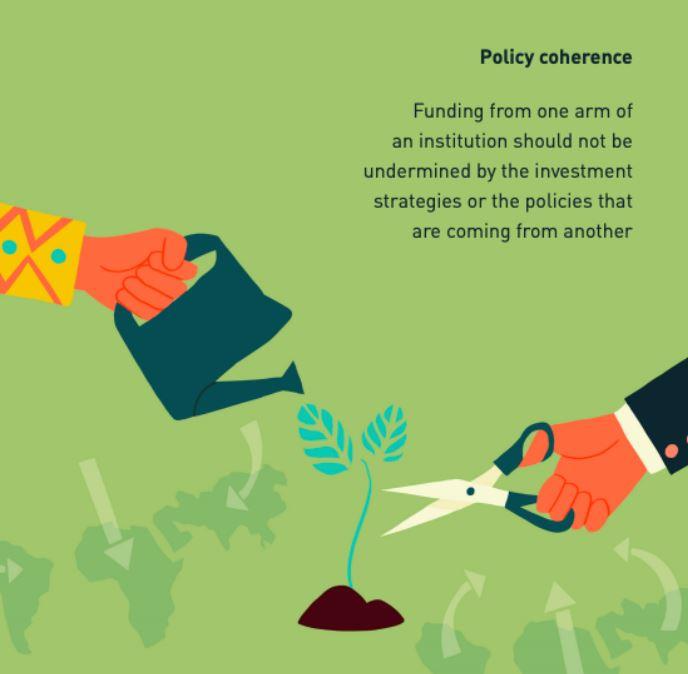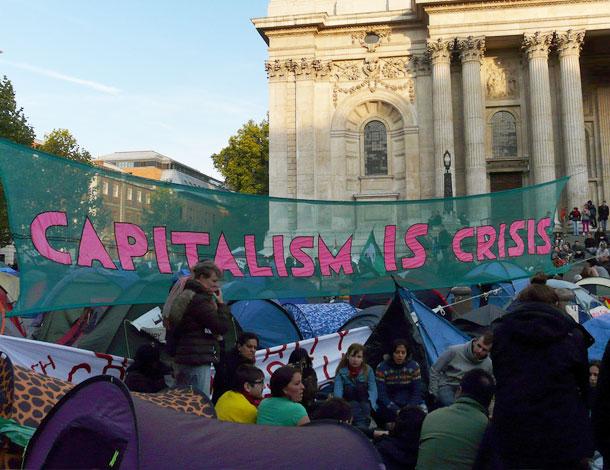Recently, Tucker Carlson of Fox News went apoplectic when Dutch journalist and historian, Rutger Bregman, came in for an interview and told Carlson, “You may not like it but you’re a millionaire funded by billionaires.” As Bregman continued to, in his own words, “speak truth to power,” Carlson quickly ended the interview in a string of insults.

This was not the first controversy Bregman’s critique of big money has stirred up in the past month. At the World Economic Forum in Davos, Switzerland in January, Bregman famously told an unsuspecting audience of heads of state, CEOs, and other power brokers to, “…stop talking about philanthropy and start talking about taxes… We can invite Bono once more, but we’ve got to be talking about taxes. That’s it. Taxes, taxes, taxes. All the rest is bullshit in my opinion.”
Bregman’s messages - and the boldness of landing them so publicly - clearly resonated with some and enraged others.
But the question remains: What does it mean to “speak truth to power” about the economy?
And is it true that, when talking about the solutions to the most urgent crises of our times, everything other than taxes is bullshit?
At AWID, we have been grappling with these same questions. For decades, we have been calling for funders to meet the needs of feminist movements around the world while also calling out the global financial system. Even as we argue for “more and better funding,” we also prioritize building feminist economies, including addressing tax justice and calling out the insidious influence of corporate power.
These dual initiatives have not come simply or easily. They’ve emerged from feminist movements’ analysis of the inextricable link between an unjust global economic system and the reality of how we resource our communities and our movements.
First, we must take an historical view.
As Edgar Villanueva writes in Decolonizing Wealth, “The basis of traditional philanthropy is to preserve wealth and, all too often, that wealth is fundamentally money that’s been twice stolen, once through the colonial-style exploitation of natural resources and cheap labor, and the second time through tax evasion.” The same can be said of development funding, the literal colonial exploitation Villanueva references.
Both philanthropy and development can be understood as public monies gone awry and removed from democratic systems of true reallocation. And they are just a drop in the bucket compared to what may be possible with robust public resources.
It is from that foundation that any social change -- from feminism to climate justice to racial justice -- must entail an economic analysis. AWID has actively partnered in campaigns such as Global Days of Action on Tax Justice for Women’s Rights and worked to reclaim economic expertise within feminist movements.

Second, we need to take an honest look at complicity.
By avoiding discussing our own complicity and that of our governments and donors, we stay on the surface, scrambling for peanuts of funding and scraps of policies rather than tackling the most fundamental problems that spur gender-based inequalities and other interrelated forms of oppression.
Complicity may be glaring: Bregman describes watching CEOs and heads of state flying into Davos on private jets to talk about climate change. His tête-à-tête with Carlson has already gone viral on social media. As his Twitter following attests, pointing out such obvious contradictions can feel great.
But complicity can also be subtle, at times nested within institutions supportive of social movements. What does it mean, for instance, when programs making grants for feminist organizations come from agencies that also champion privatization of land or invest heavily in extractive industries? What about “charity” from corporations whose labor practices exploit rather than upend inequality [1]?
Even as we say this, we remain conscious that funding is scarce and precious for feminist movements.
We recognize that many well-intentioned people are working hard to get money out the door. But when can we have these conversations, honestly and without deference? Where and how can we say, “Thank you for your leadership in funding, but your mines are killing us”?
It is precisely this bind that demands a bigger view.
Finally, “taxes, taxes, taxes” is a pithy phrase (and one to which Bregman certainly adds nuance in his work), but this call cannot be divorced from the reality that inequality relies on patriarchy, racism, and centuries of colonial exploitation.

For tax justice to be a reality, the roots of capitalism have to be shaken.
Progressive tax schemes by themselves will do little for those who are excluded from decent work or fair housing because of their race, sexual or gender identity, or ability. Taxes alone are not enough to fix the water and air that has been poisoned in the name of profit -- whether in the notorious “race to the bottom” spurred by development or in poor communities and communities of color in so-called “developed” countries. And taxes may strengthen social support, but without explicitly addressing the impossible burden of care work and reproductive labor placed on women, they will never lead us to a truly just society.
[1] Within philanthropy, a small number of social justice funders are interrogating these questions. For instance, Justice Funders recently shared a 100-year vision of “just” philanthropy, which seeks to redistribute all aspects of well-bring, democratize power and shift economic control to communities. This is philanthropy that aims to put itself out of business, strengthen democratic institutions, and shift power over resourcing.
